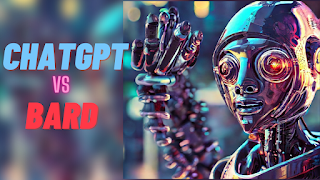 |
February 14 2023 Aizawl :
In the past week, two of the world's most powerful tech companies, Microsoft and Google, announced plans to integrate generative AI technology into their search engines. For Microsoft, this move represents a potential turning point for its search engine Bing, while for Google, it is a continuation of its efforts to stay at the forefront of the AI revolution.
However, the two companies' approaches have been markedly different, with Microsoft's event at its headquarters in Redmond, Washington generating much excitement, while Google's announcement was overshadowed by a significant market loss. At the forefront of Microsoft's plans is ChatGPT, an AI language model technology by OpenAi. According to Satya Nadella, the CEO of Microsoft, ChatGPT will enable Bing to deliver more personalized, relevant search results and the Edge browser to provide more natural, conversational responses to user queries. The aim is to create a more intuitive and user-friendly search experience, one that is more akin to asking a knowledgeable friend for advice than typing search terms into a machine.
In addition to its focus on ChatGPT, Microsoft is also investing heavily in language understanding, with the aim of creating a search engine that can interpret and understand the nuances of human language. This includes the ability to recognize different questions, as well as the ability to understand the context in which certain words are used. If successful, this technology could represent a significant leap forward in search engine capabilities, one that could transform the way we find information online.
For Google, the focus is on a technology called Bard, which is similar to ChatGPT but with some key differences. Bard is designed to be more versatile than ChatGPT, with the ability to generate responses to queries in a variety of formats, including text, voice, and images. This flexibility could make Bard a powerful tool for a wide range of applications, from voice assistants to chatbots to customer service.
However, Google's announcement did not go entirely to plan. In a promotional tweet, the company demonstrated the power of Bard by showing how it could answer a complex question. Unfortunately, the answer turned out to be wrong, leading to significant embarrassment and a loss of $100 billion in market value.
Google shared a GIF of Bard responding to the question, "What new findings from the James Webb Space Telescope can I tell my 9-year-old about?" In response, Bard provides three bullet points, one of which asserts that the telescope "took the very first photos of a planet outside of our own solar system." However, some astronomers on Twitter pointed out that this is erroneous and that the first image of an asteroid is incorrect.
While this error may have been a minor setback for Google, it highlights the potential risks and challenges of integrating AI technology into critical systems.
Despite the mixed results, the race to integrate AI into search engines is only just beginning. As the capabilities of these technologies continue to evolve, we can expect to see new and innovative ways of finding information online. From personalized recommendations to more natural language processing, the future of search engines looks set to be more intelligent and intuitive than ever before. However, as with any technological revolution, there are also risks and challenges that must be addressed. From privacy concerns to the risk of unintended consequences, we must tread carefully as we embrace the power of AI. But if we can harness the potential of these technologies while minimizing the risks, we could be on the cusp of a new era of search engine technology, one that promises to revolutionize the way we find and access information online.
ALSO READ : Google translate adds support for Mizo, Manipuri, Assamese and 21 other new languages
NASA Found A Doorway On Mars?? What Is this Structure Really?
